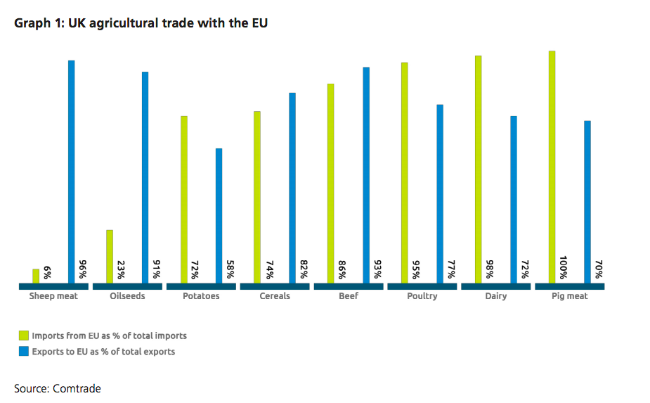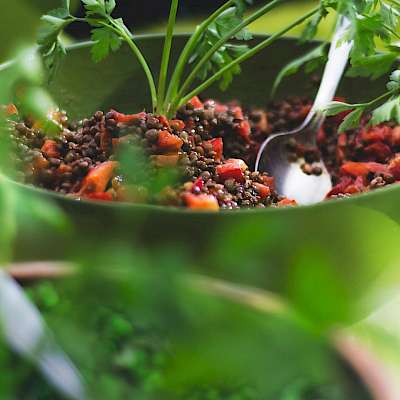New EFRA Committee report warns that food trade under WTO rules post-Brexit could lead to cheaper imports, produced to lower standards, damaging British producers.
Eating Better has welcomed the Environment, Food and Rural Affairs Committee of MPs report into Brexit: Trade in Food and its commitment to maintaining high food standards, saying:
“The UK has an international reputation for high animal welfare, environmental and food standards. These must not be sacrificed on the altar of cheap imports. Doing so could undermine the premium British brand and might affect our ability to negotiate trade deals with other countries. We will hold the Secretary of State to his assurances that there will be no compromise on animal welfare, environmental and food standards.”
In Eating Better’s submission to the Inquiry last autumn, we called for Brexit and new trade deals to mean high-standard Britain, particularly for meat and dairy foods, and for a reshaping of our food and farming system so that it delivers better for our health, the environment and climate change, for farm animal welfare, and for providing livelihoods from sustainable farming.
The Committee’s report illustrates the importance of EU trade for food (see chart below) which accounts for on average 60% of exports and 70% of imports, though this is typically higher for livestock products.

The report focuses on the impact of the UK having to trade under World Trade Organisation (WTO) rules in the event of no deal being reached between the UK and EU. It starkly warns of the consequences for the British public of higher food prices from existing tariffs, while at the same time highlighting that reducing tariffs could have a devastating effect on the long-term future of the UK’s agricultural industry with many British farmers forced out of business by cheaper imports produced to lower standards. In contrast to this scenario, the Committee wants to see Government policies that would stimulate home grown food production.
The Committee’s MPs also criticise the Government for its failure to offer any clarity to the agricultural industry on its post-Brexit policy, the lack of IT systems to deal with future trade and uncertainty about how border inspections will be carried out.
Eating Better also welcomes the recommendations for improved food labelling to improve country of origin labelling and for mandatory method of production labelling which would help people choose meat and dairy foods produced to higher standards.
Eating Better agrees with the Committee that clarity is needed as to the Government’s long-term vision and future support. We shall be looking carefully at the Government’s forthcoming Agriculture Bill.
House of Commons, Environment, Food and Rural Affairs Committee, Brexit: Trade in Food, published 18 February 2018 can be downloaded here.
Featured images, some rights reserved:
House of Commons logo, all rights reserved
Graph provided by acomtrade, All rights reserved
